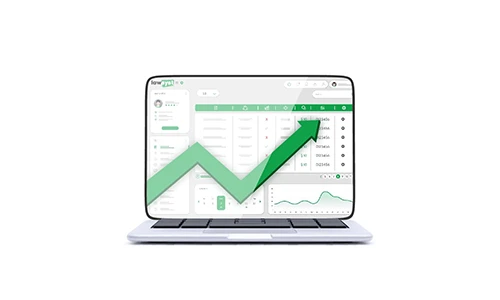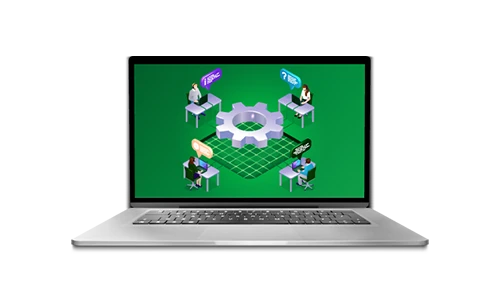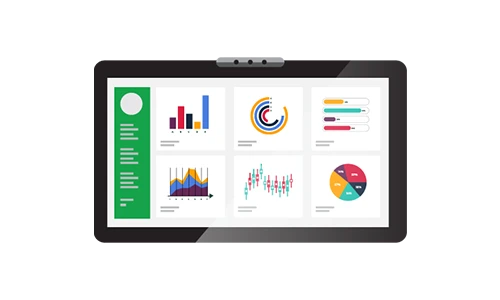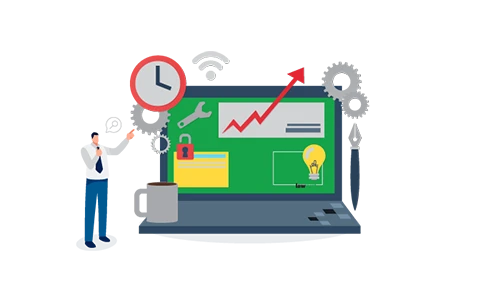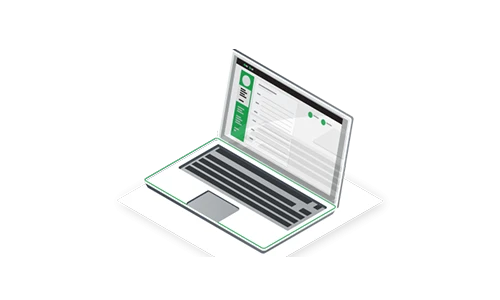Civil litigation cases can be complex and time-consuming, the need for efficient and effective case management solutions is paramount. Legal departments are increasingly recognizing the importance of adopting court bundling software, criminal case management system and civil litigation case management software to streamline their operations, improve collaboration, and enhance overall productivity.
This article explores the key considerations, benefits, and challenges associated with implementing such software in legal departments. By understanding the evolving role of technology in legal workflows and harnessing the power of advanced case management solutions, legal professionals can adapt to the changing demands of civil litigation and achieve greater efficiency, accuracy, and success in their practices.
Understanding the Challenges Faced by Legal Departments
Legal departments have never had it easy when it comes to managing civil litigation cases. With piles of paperwork, countless deadlines to meet, and an ongoing need to collaborate with colleagues, it's like trying to juggle between the tasks.
The Role of Technology in Streamlining Legal Processes
Thankfully, technology has come to the rescue like a superhero in a fancy cape. The software is here to make our lives easier and our legal departments more efficient. It helps streamline processes, organize mountains of case-related information, and ensure everyone is on the same page.
Understanding the Benefits of Implementing Civil Litigation Case Management Software
Enhanced Organization and Collaboration in Legal Workflows
One of the most significant benefits of using this software is the enhanced organization it brings to legal workflows. With all case-related information stored in one central location, you can wave goodbye to the days of searching through stacks of paper or endless email threads. Collaboration becomes a easy, and everyone can work together harmoniously.
Improved Efficiency and Time Management
Time is precious, especially in the world of law. It helps you manage your time more efficiently by automating repetitive tasks, setting reminders for important deadlines, and giving you a clear overview of your workload. You can finally stop feeling like you're constantly running against the clock and take a moment to breathe.
Real-Time Tracking and Reporting of Case Progress
Gone are the days of guessing where a case stands. With this software, you can track and monitor case progress in real-time. Moreover, the software provides easy-to-generate reports, so you can impress your superiors with your impressive case management skills.
Key Considerations for Adapting Legal Departments to Civil Litigation Case Management Software
Following are the key consideration to adopt the software:
Assessing Current Case Management Practices and Identifying Gaps
Before diving headfirst into the world of court bundling software, criminal case management system and civil litigation case management software, it's important to assess your current practices and identify any gaps or areas that could use improvement. You don't want to be like a chicken running around without its head.
Addressing Change Management Challenges and Overcoming Resistance
Let's face it, change can be hard. Especially when it disrupts established routines and workflows. To ensure a smooth transition, it's essential to address change management challenges and overcome any resistance that may come your way.
Ensuring Data Security and Confidentiality
In the legal world, data security and confidentiality are paramount. When implementing the software, it's crucial to choose a solution that prioritizes these aspects. You don't want your sensitive case information to end up in the wrong hands. Keep your legal secrets safe and sound, like a vault protected by a security code.
Selecting the Right Software for Your Legal Department
Here are the steps that should be taken to select the right software for your legal department:
Evaluating Feature Sets and Functionality Requirements
When it comes to selecting the perfect software, it's important to evaluate its feature sets and functionality requirements. Do you need built-in document management? Automated document assembly? Deadline tracking? Make a list of your must-haves and nice-to-haves, and find a software that checks all the boxes. It's like online shopping, but for legal nerds.
Considering Integration with Existing Legal Technology Systems
Chances are, your legal department is already using some form of technology to manage cases. Before making a decision, consider how the new software will integrate with your existing systems. You don't want a technological clash of epic proportions.
Vendor Evaluation and Selection Process
Last but not least, the vendor evaluation and selection process. Just like choosing a partner for a dance competition, you want to ensure you're picking the right one. Look for a vendor with a good reputation, excellent customer support, and a track record of success. Don't be afraid to ask for references or even perform a background check. It's your legal department's future at stake here, after all.
Implementing Civil Litigation Case Management Software: Best Practices and Challenges
Developing a Comprehensive Implementation Plan
Implementing the software can be an exciting yet daunting task for any legal department. To ensure a smooth transition, it is crucial to develop a comprehensive implementation plan. This plan should outline clear goals, establish timelines, and identify key stakeholders who will be involved in the process. By having a well-defined implementation plan, you can minimize disruptions and maximize the benefits of the new software.
Effective Data Migration and System Configuration
One of the significant challenges during the implementation of the software is migrating existing data. It is essential to ensure that the data from your current systems can be seamlessly transferred to the new software. Moreover, the system configuration should be tailored to meet the unique needs and workflows of your legal department. By investing time and effort into effective data migration and system configuration, you can avoid unnecessary complications and make the most of the software's capabilities.
Overcoming Implementation Challenges and Ensuring User Adoption
Implementing any new software often comes with challenges, and this software is no exception. Resistance to change and lack of user adoption can hinder the successful implementation of the new system. To overcome these challenges, it is crucial to communicate the benefits of the software to your team and involve them in the decision-making process. Providing training and ongoing support will also help to ensure that users feel comfortable and confident using the software.
Training and Support: Ensuring Successful Adoption of Civil Litigation Case Management Software
Designing and Delivering Training Programs for Legal Staff
Proper training is key to successfully adopting the software. Designing comprehensive training programs that cater to the specific needs of your legal staff can help them navigate the software efficiently. Whether it's through in-person training sessions, online tutorials, or user guides, providing the necessary resources and support will empower your team to make the most of the software's features.
Providing Ongoing Technical Support and Troubleshooting
Even after the initial training, it is essential to provide ongoing technical support and troubleshooting to address any issues that may arise. Having a dedicated support team or helpdesk can significantly reduce frustration and downtime for your users. Promptly addressing any technical difficulties will ensure that your legal department can continue working efficiently with minimal disruptions.
In conclusion, as civil litigation cases continue to grow in complexity and volume, legal departments must adapt to new technologies to stay ahead. By embracing court bundling software, criminal case management system and civil litigation case management software, legal professionals can unlock numerous benefits such as enhanced organization, improved efficiency, and real-time tracking of case progress. While the implementation and adoption may present certain challenges, with careful planning, training, and ongoing support, legal departments can successfully optimize their workflows and achieve greater success in managing civil litigation cases.


